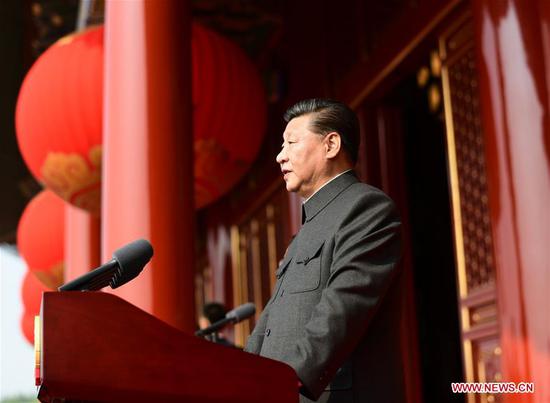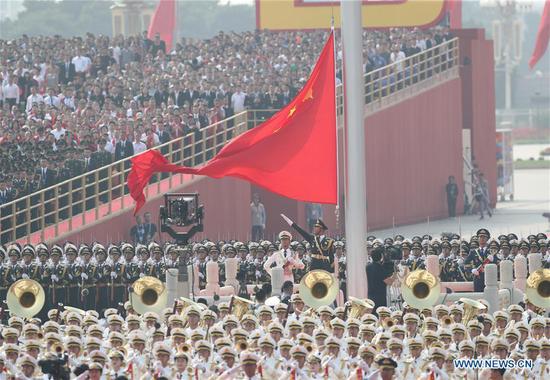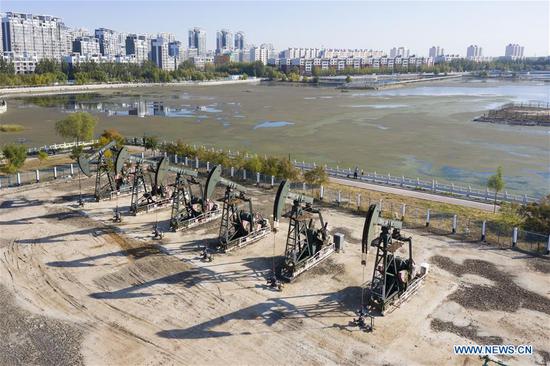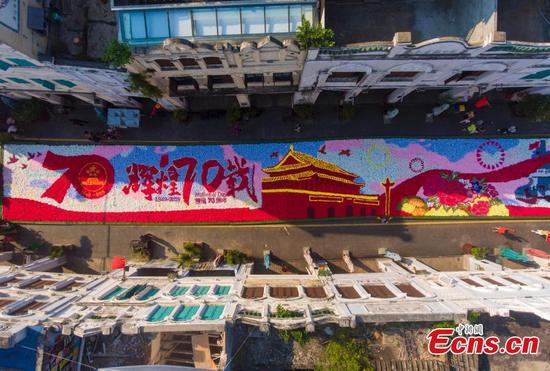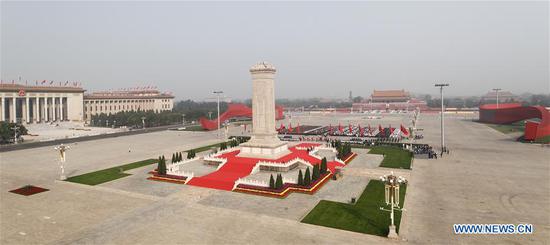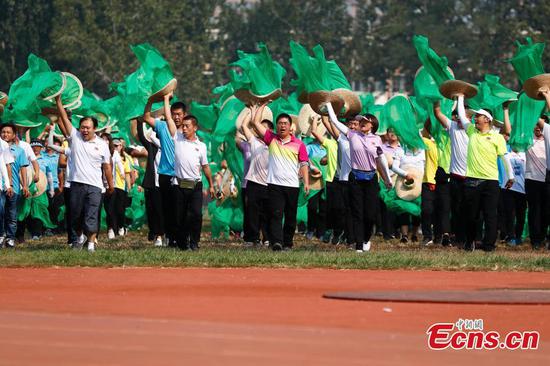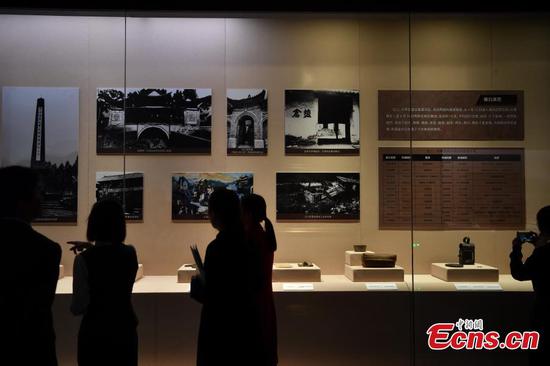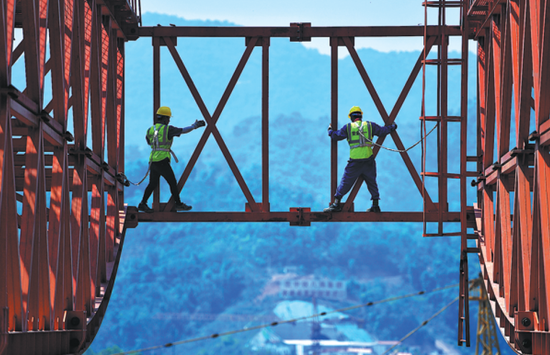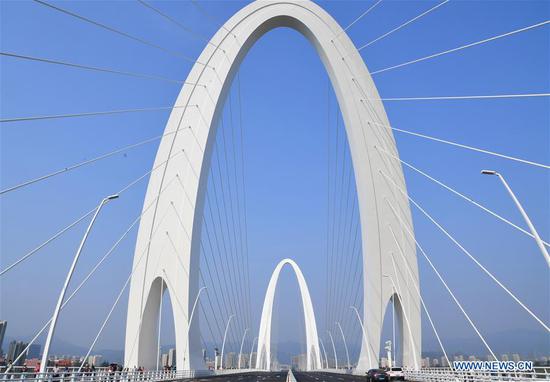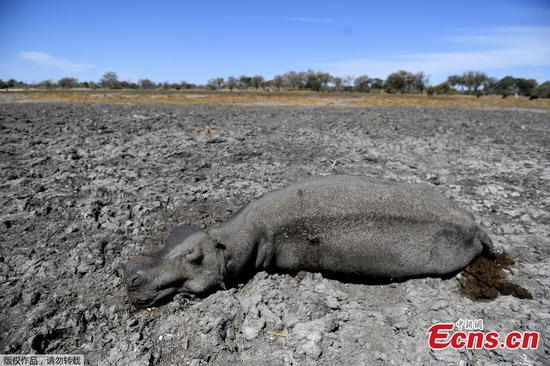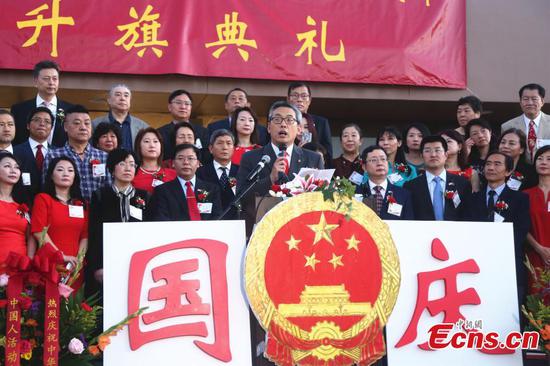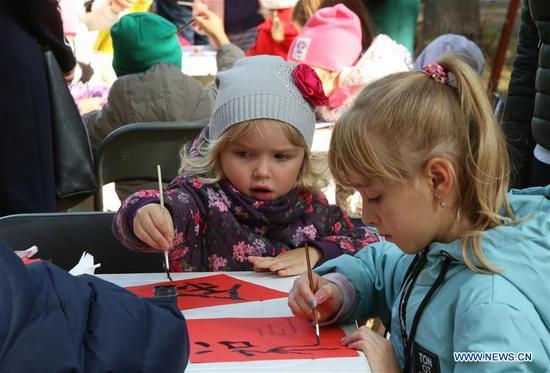As China steps up efforts in establishing a social governance model based on collaboration, participation and common interests, people's passion for involvement has been lit up at the community level.
For 83-year-old Li Shu'an, who lives in the northeastern suburb of Beijing, going to the bank on the other side of the river in front of her residential compound every month used to be time and energy-consuming.
There was only a clunky small bridge on the river which was not for pedestrian use.
"It troubled me a lot," Li said. It usually took the old lady more than half an hour to walk along the riverside, make a detour and go to the bank to draw her pension.
Her wish for a bridge was the common voice of many residents in the community, who liked to do family shopping on the other side.
Li juhua, 73, decided to be the messenger and expressed the demand for a bridge in a two-page letter that eventually got 457 signatures before it was sent to the subdistrict office in late September 2018.
Renovation work started two months later, with the bridge floor replaced and a walkway and hand-rails added. The reconstructed foot bridge was opened to the public in May.
The good interaction between people and the government has not only brought travel convenience but a better environment as well.
Located in Fangshan District, 80 km southwest of downtown Beijing, parts of the Nanquanshui River bank used to be "dumping-grounds" a dozen years ago.
Tong Guoxing, a 62-year-old resident of Dashiwo Township along the river, joined some 100 others, mostly middle-aged and elderly townsmen from low-income households, in river patrol one year after ecological restoration measures were taken to protect the river in 2016.
"It's our river, and we have to take good care of it," said Wang Yin, who was resting by the river with a broom and a rake at his side -- "self-made tools for river patrol" in his words.
Thanks to China's promotion of the river chief system since 2012, more and more rivers have "guardians" today. People like Tong and Wang have played an important role as complementary forces in river protection, and they get paid by the township government.
In Feijia village, outside the fifth ring road northeast of Beijing, fire risks had long brought hidden dangers to local villagers. The demand for improving emergency management was imminent.
An early warning system was put into operation in the village in 2017, and has issued thousands of hazard warnings and helped put out eight early fires so far.
The system, powered by IoT, big data, AI and other cutting-edge techs, is capable of alarming people to fires, preventing thefts, searching for missing children and so on, according to the developer.
To date, the system has been used in more than 130 cities of 25 provinces and municipalities around the country, supporting smart city construction.










